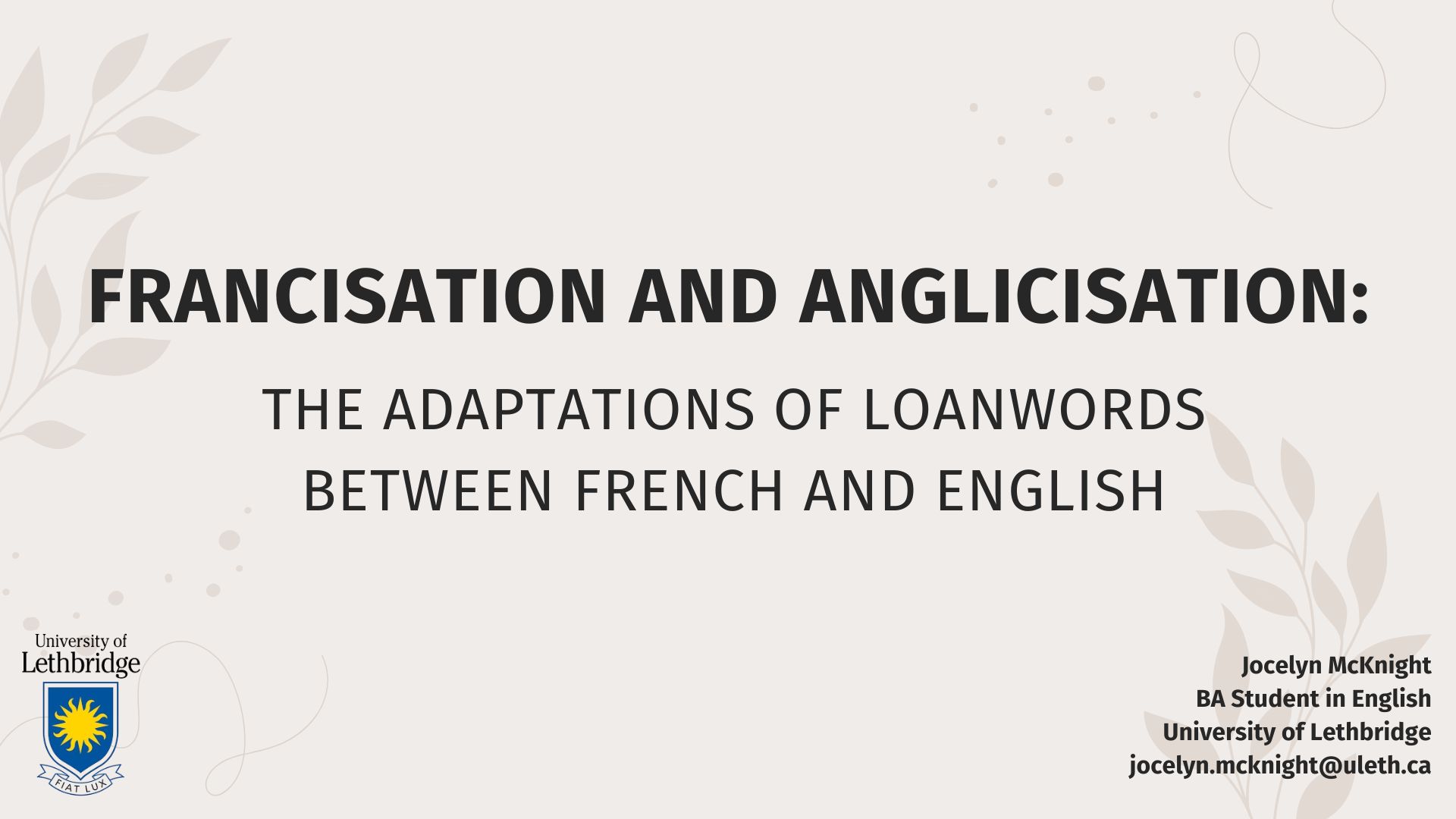Francisation and Anglicisation: The Adaptation of Loanwords between French and English
This presentation examines the phonetic and phonological adaptations that occur when French and English words are borrowed from each other, with a focus on the bidirectional nature of these changes. It explores how loanwords undergo only minimal adaptations, meaning that linguistic changes occur only when absolutely necessary. This investigation takes the form of a series of case studies focusing on consonants in both their voiced and voiceless forms. Key examples include postalveolar affricates, glottal fricatives, and dental fricatives, with instances drawn from both languages.
The methodological approach in this study is qualitative, based on combinatory phonetics and comparative linguistics. The dataset consists of a curated list of relevant loanwords that entered the receiving languages at various points in history and are not geographically bound. Data for this study were collected using reputable dictionaries such as the Oxford English Dictionary and Larousse. When English loanwords enter French, the phonemes either remain unchanged, disappear, or adapt to the closest French equivalent. English also retains phonemes in their original form and adapts them when necessary. However, instead of sound deletion, there is occasionally consonantal epenthesis. This study could be replicated with a larger dataset to validate the generalizability of its findings.
The file is available here on Zenodo.

Enjoy Reading This Article?
Here are some more articles you might like to read next: